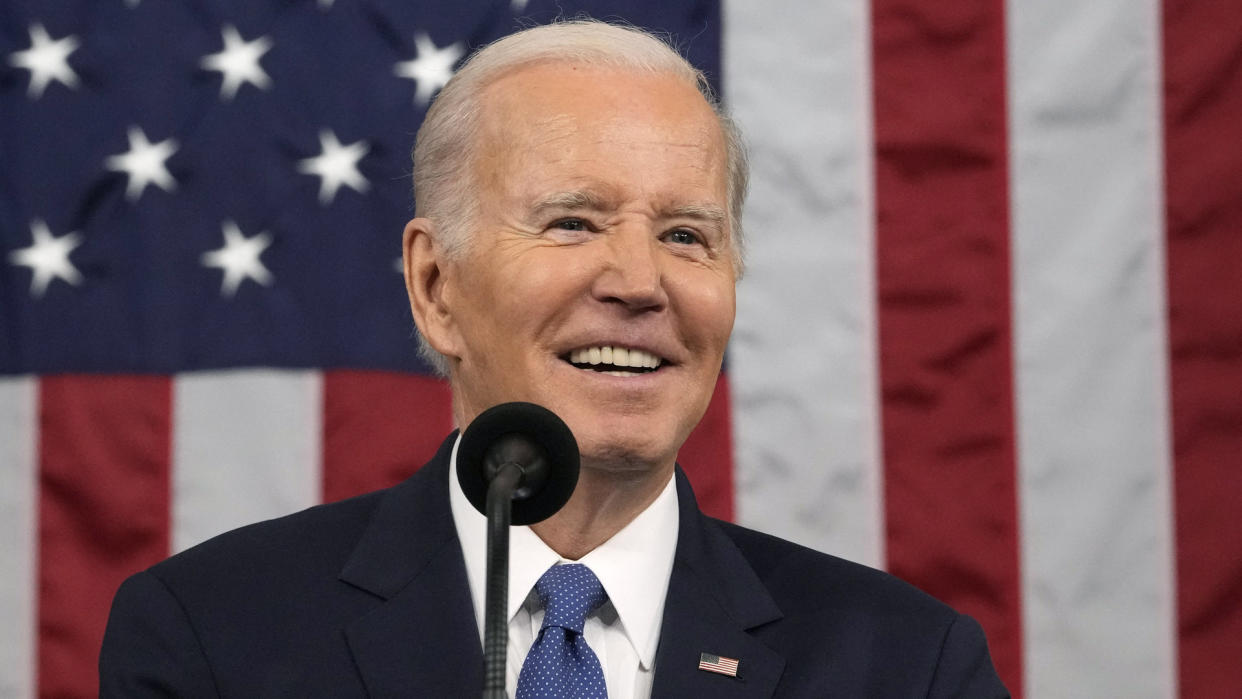Biden Reasserts Need To Crack Down on Junk Fees — How Much Do They Cost You?

During his State of the Union address on Tuesday, Feb. 7, President Joe Biden, reasserted the need to pass the Junk Fees Prevention Act which would limit hidden fees and surcharges hidden in everything from hotel fees to airline fees, concert fees, cable fees and bank fees. He took specific aim at the airline industry which charges for seat choice, something parents must pay to guarantee placement next to their children.
Find: Manchin Proposes ‘Easiest’ Social Security Fix — Would Biden Agree?
Explore: 3 Ways Smart People Save Money When Filing Their Taxes
“Baggage fees are bad enough — they can’t just treat your child like a piece of luggage,” Biden said. “Americans are tired of being played for suckers.”
This past October, Biden, in conjunction with the Consumer Financial Protection Bureau (CFPB), announced progress on so-called “junk fees” which end up costing American consumers a lot of money.
According to the latest fact sheet, these fees can “drain hundreds of dollars a year from the pockets of hardworking American families, especially folks who are already struggling to make ends meet — but not anymore after today,” Biden said at the fourth meeting of the Presidential Competition Council on Feb. 1, CNN reported.
These fees make up “tens of billions of dollars in revenue” in many industries. For example, in 2020, credit card late payment fees made up an estimated $12 billion in revenue; bank overdraft and non-sufficient funds totaled $15.5 billion in 2019; hotel resort fees made up $2.93 billion in 2018; airline baggage and change fees made up $5.97 billion in 2021; and cable hidden fees made up $28 billion in 2019.
The proposed legislation, called the Junk Fee Protection Act, would target these four excessive fees, according to CNN:
Online concert, sporting event and entertainment ticket fees
Airline fees for families sitting together on flights
Early termination fees for TV, phone and internet services
Surprise resort and destination fees
Biden added that the proposed law would lower credit card late fees from $31 on average to $8. The Biden administration expects this change to save Americans roughly $9 billion a year in total savings.
On Oct. 26, the CFPB issued guidance about two junk fee practices regarding surprise overdraft fees and depositor fees.
As for surprise depositor fees, which happen when a consumer deposits a check that bounces, banks sometimes charge a fee to the depositor, usually in the range of $10 to $19, the CFPB said in the release. “Charging a fee to the depositor penalizes the person who could not anticipate the check would bounce, while doing nothing to deter the originator from writing bad checks,” according to the release.
Unlimited Flights for $399? Frontier Airlines Is Offering New Summer Pass
Learn: Will Ending SNAP Emergency Funds Hurt Biden 2030 Anti-Hunger Goal?
CFPB Director Rohit Chopra also noted that Congress banned excessive credit card late fees over a decade ago, CNN reported, but companies have exploited a regulatory loophole. The new rule would ensure that the credit card market is fair and competitive.
Yaël Bizouati-Kennedy contributed to the reporting for this article.
More From GOBankingRates
This article originally appeared on GOBankingRates.com: Biden Reasserts Need To Crack Down on Junk Fees — How Much Do They Cost You?

 Yahoo Movies
Yahoo Movies 
